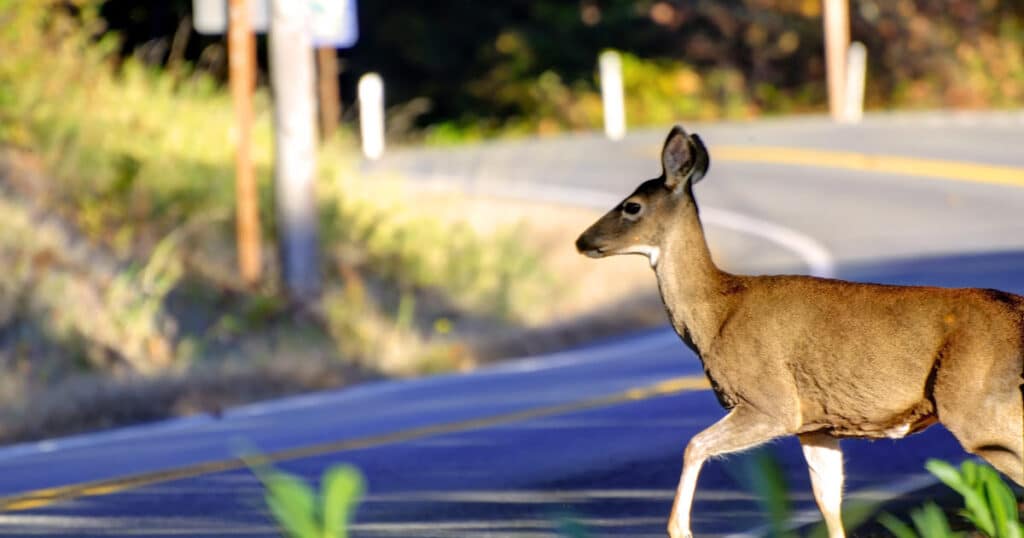There are approximately 30 million deer, including whitetail deer, moose, and elk, in the United States. With such an enormous cervid population, the risk of cars and other vehicles colliding with these animals is quite high. This is why many drivers are looking for solutions like deer whistles. These simple devices attach to your vehicle and emit a sound deer dislike, hopefully making deer flee in the other direction. But do deer whistles work? Are they necessary?
In today’s article we’ll explore the efficacy of deer whistles.
We’ll explore:
- Data on cars and deer collisions
- How deer whistles work
- How effective are deer whistles?
- Do deer whistles work on motorcycles?
- Can humans and dogs hear deer whistles?
- What is the best deer whistle?
- General tips for avoiding hitting a deer
Let’s get started!
Data On Vehicle Collisions with Deer
Table of Contents
ToggleBased on data from July 2020 to June 2021, there are over 1.9 million insurance claims from a collision with an animal. Of these animal insurance claims, 1.5 million (nearly 80%) involved deer collision incidents.
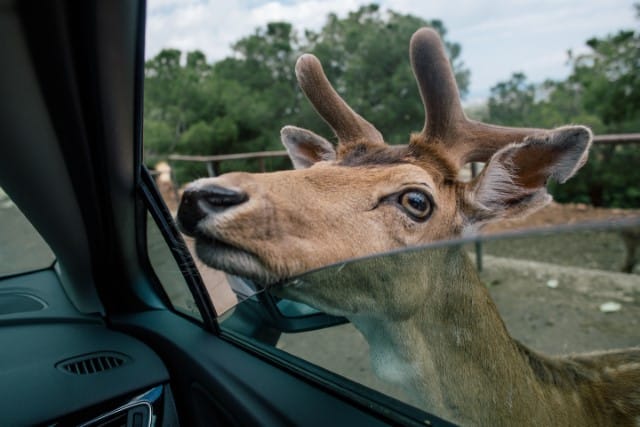
These accidents resulted in as many as 200 fatalities, thousands of injuries, and vehicle damage costing over a billion dollars.
West Virginia, Montana, Pennsylvania, South Dakota, and Michigan are among the top states where motorists are likely to get involved in animal collisions.
Safe Driving May Not Be Enough
Road safety is a priority no matter where you live, but it’s even more of a priority if you live somewhere where a deer might leap into a road or highway and right into your car’s path.
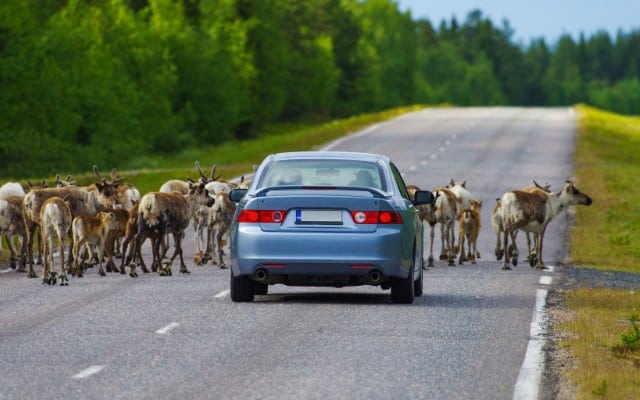
Even if you observe road safety regulations and drive within the speed limit, you can be caught off guard when an animal suddenly appears in front of your vehicle.
Safe driving practices are your obligation as a driver and you must always practice them. Yet it’s possible for deer to surprise even the most conscientious driver.
That’s why you’re probably thinking about getting a deer whistle.
All About Deer Whistles
Let’s learn about deer whistles, and endeavor to separate some of the marketing surrounding these products from reality so you can make an educated choice for your vehicle.
Deer Whistle Manufacturers’ Claims
Deer whistle manufacturers claim that these whistles are an effective extra safety precaution to avoid deer collisions. They say that deer whistles create sound waves that can alert deer of your oncoming vehicle.
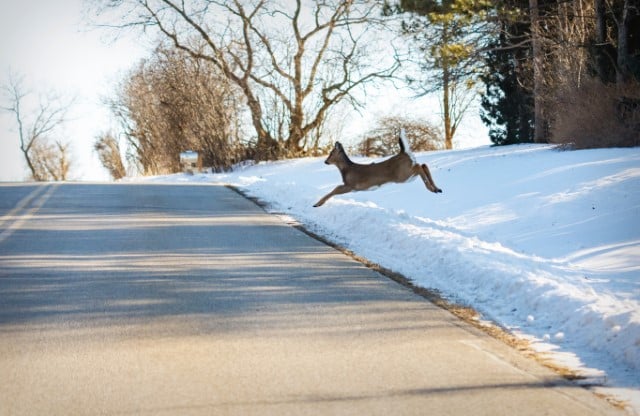
Upon hearing the sound coming from the device, deer will stop in their tracks and be deterred from running across the road.
Do Deer Whistles Really Work? (what consumers say)
Some drivers say that deer whistles are effective at helping prevent deer collisions. However, others believe they create a false sense of security.
Drivers who like deer whistles say that this is a simple and inexpensive device that is worth installing on your vehicle to help prevent deer collisions.
So, Do Deer Whistles Actually Work?
The data is inconclusive on whether deer whistles actually work. There have only been a few studies on the effectiveness of deer whistles in preventing collisions. None of those studies proved that deer whistles actually work in alerting deer of approaching vehicles.
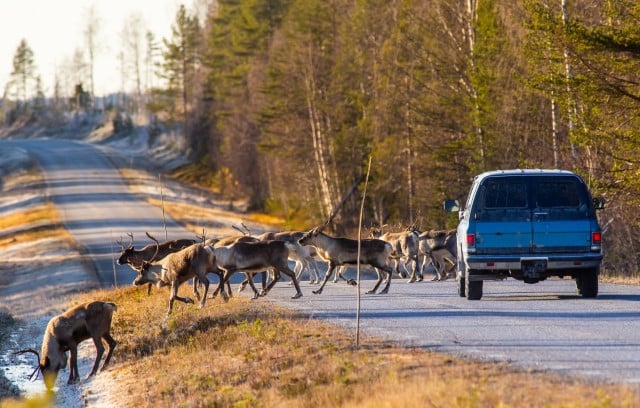
Research Studies About Deer Whistles
For instance, a 2003 research study led by animal audiology expert Peter M. Scheifele concluded that deer whistles aren’t effective as an auditory deterrent device in reducing accidents caused by deer.
The study found that all the tested devices weren’t perceptible enough by deer hearing to make an impact on their behavior.
In another study, University of Georgia graduate student Sharon Valitzki and her team tested whether deer could hear sounds produced by deer whistles. Frequencies were broadcast at five different levels, all higher than 70 decibels.
These researchers found that while all the frequencies were audible to deer, they did not have any effect on deer behavior.
How Do Deer Whistles Work?
Deer whistles or deer horns are devices that you can mount on your vehicle’s bumper or grill. Most deer whistles are air-activated, which means that when air passes through the device, it emits sounds that are audible to deer.
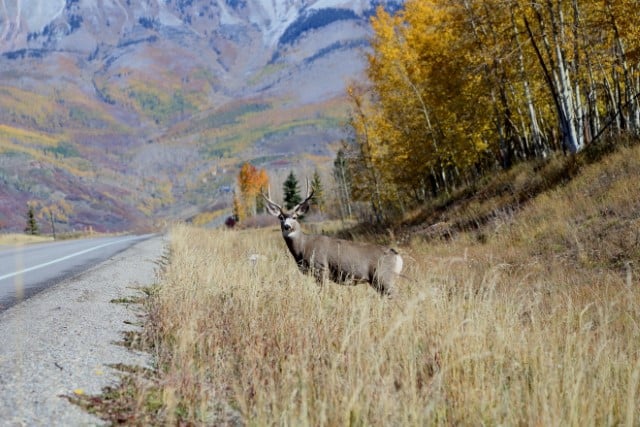
There are also electronic deer whistles that can produce both sonic and ultrasonic sound waves.
The sound acts as a warning for deer, which can either cause deer to stop moving or scare them off from running into traffic.
At What Speed Do Deer Whistles Work?
Most air-activated or air velocity deer whistles are designed to produce sound when the vehicle is running above 30 mph. The typical sound frequency for deer whistles is between 16 and 20 kHz.
Do Deer Whistles Work on Motorcycles?
Yes, deer whistles work on motorcycles. But the deer whistle must be correctly mounted in order to create the sounds they’re designed to make.
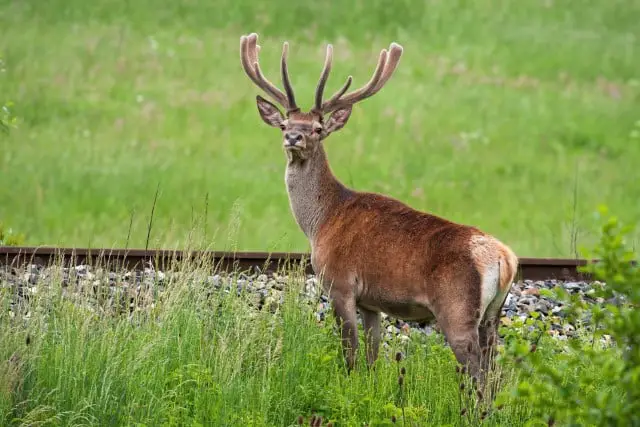
Because deer whistles need air to work, you should mount them in a spot where the device faces an oncoming stream of air.
You must also ride at a minimum speed of 30 mph for the whistle to be able to emit its sound.
Do Deer Whistles Work for All Deer Species?
Deer whistles are designed not only for white tailed deer but also for other species of deer, including moose and elk.
Deer whistle manufacturers also claim that sounds made by a deer whistle can be heard by other animals, like kangaroos and antelopes.
Can Dogs Hear Deer Whistles?
The hearing range of dogs is between 67 and 45,000 hertz.
Studies on deer whistles and their effect on dogs are yet to be done, but dogs could probably hear deer whistles if the frequency made by the sound of a deer whistle falls within a dog’s hearing range.
Can Humans Hear Deer Whistles?
The human ear can detect sounds with frequencies ranging from 20 hertz to 20 kilohertz. Deer whistles typically produce frequencies between 16 and 20 kilohertz.

Based on this data, it is possible for humans to hear deer whistles.
However, driving conditions like a gust of wind, and noises from the surroundings and other nearby vehicles can make it difficult for humans to hear deer whistles.
What is the Best Deer Whistle?
Many versions of deer whistles are available in car shops and online marketplaces.
Here are some of the top-reviewed deer whistles currently on the market:
WorldDeer.org is reader supported. If you make a purchase after clicking a link, we may earn a commission at no additional cost to you.
- Save-a-Deer Whistle by Living Products – small, single mount deer whistle in the market
- Bell Automotive Deer Warning Whistle – produces two high-pitched sounds
- Hopkins Electronic Deer Whistle – activates using power source dash-mounted switch or ignition button
- Herbert Richter Deer Whistle – emits sounds up to 400 meters
- Katzco Deer Whistle – emits ultrasonic sound; holds up well against the elements
How Do You Stop Deer from Hitting Your Car?
We’ve learned that there’s no hard evidence showing that deer whistles are reliable in preventing deer from running in front of your car.
So, what else can you do to prevent collisions with deer?
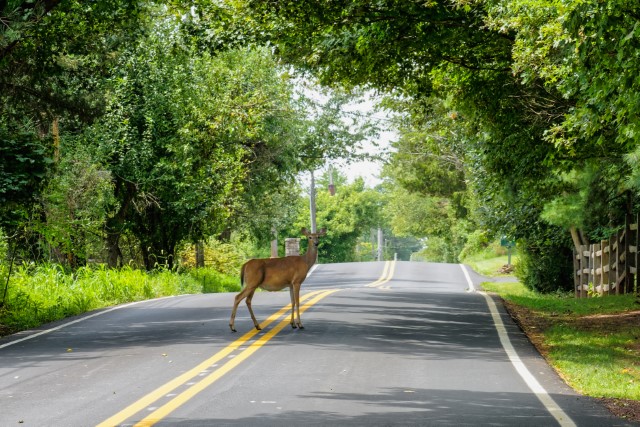
Go ahead and install a deer whistle on your car if you want some added peace of mind, but don’t rely on it to prevent a deer collision.
We recommend that you take additional steps to help make these accidents less likely.
Here are three ways to avoid deer-vehicle accidents:
Avoid Driving During Peak Deer-Activity Hours
Deer are crepuscular (as opposed to nocturnal) animals. This means they’re most active during the hours around dusk and dawn.
That is why (if possible) you should avoid the road when the sun sets through midnight and before sunrise. These are high-risk periods when you are most likely to collide with a deer.
If you can’t avoid driving at dusk, nighttime, or dawn, make sure your car’s headlights are at the high beam to increase your visibility.
Understand that deer freezing in headlights is a real phenomenon, so the onus is on you to be alert and recognize deer in your path.
Drive Carefully and Stay Alert
Drive slowly, always wear your seatbelt, and remain alert.
Deer often travel in groups called herds and a single file, so if you see one deer crossing the road, expect that there are more on its tail.
Be patient and wait until all deer have crossed the road.
Avoid Swerving
Use firm braking instead of swerving around a deer. Deer movements are unpredictable.
What Should You Do If You Hit Deer?
Accidents can happen no matter how careful you are.
If you ever hit a deer, safely move your vehicle to the side of the road and call the authorities.
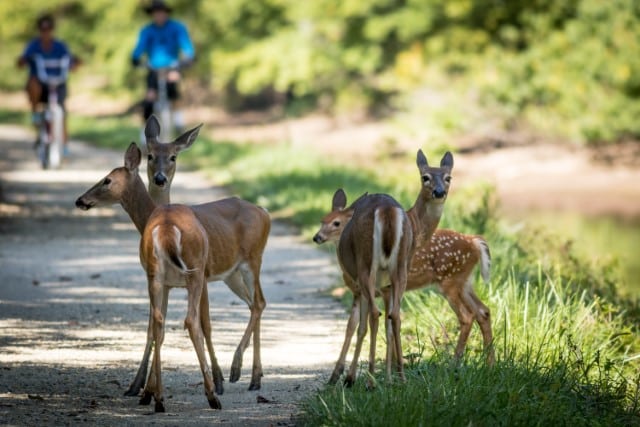
Never attempt to get close to or touch the injured deer as it might injure itself further or try to attack you.
You can save photos of the scene while you wait for the police. These may be helpful when you submit your insurance claim.
Final Thoughts on the Effectiveness of Deer Whistles
Deer and humans live in closer proximity now than they ever have before.
Do you drive in an area with deer populations? This is something you’ve always got to remember when you’re behind the wheel.
Collisions with deer are dangerous and cause costly vehicle damage, so drive more slowly and carefully when you drive through areas with deer.
While deer whistles haven’t been proven to reduce deer collisions, they’re inexpensive and could be worth adding to your car in certain situations.
We are a participant in the Amazon Services LLC Associates Program, an affiliate advertising program designed to provide a means for us to earn fees by linking to Amazon.com and affiliated sites.

